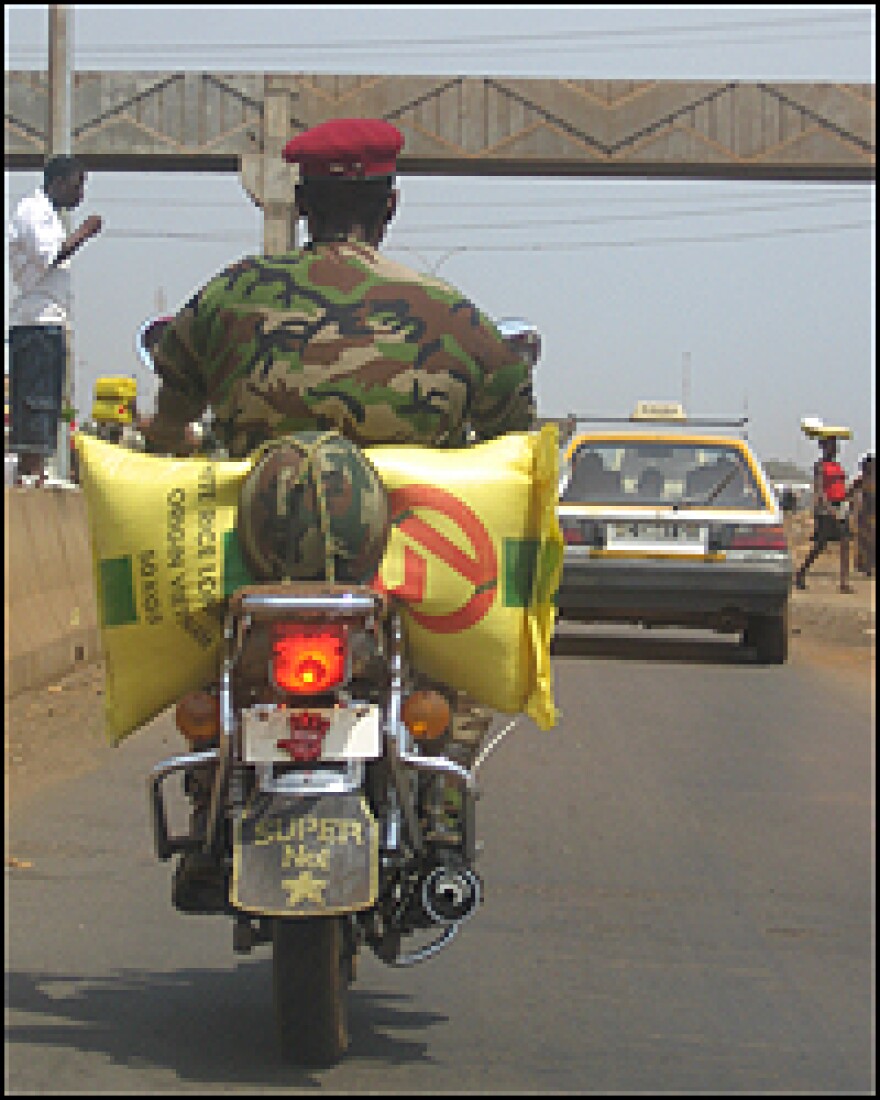
Political deadlock continues in Guinea, almost two weeks into a state of emergency decreed by the West African nation's veteran president.
Martial law was imposed in reaction to a nationwide strike and a wave of popular protests that turned violent. Labor leaders have refused to call off their crippling stoppage, until the president appoints a new "neutral" prime minister.
With a 12-hour curfew in place, Guinea has ground to a virtual halt, with the streets patrolled by soldiers. In Conakry, Guinea's seaside capital, schools, shops, offices, businesses and many markets remain closed.
But why is Guinea — the world's leading exporter of bauxite used to make aluminum — locked in a stand-off?
The simple answer is that many are desperately poor in a potentially rich country, with mineral resources galore.
"People are fed up," says political commentator Souleymane Diallo. "Fed up of fighting. Last year, Guineans were fighting for the bag of rice. Now they are fighting for a plate of rice. Poverty is growing very fast. Corruption is at the highest. Corruption and corruption and corruption. So it could only explode... You can see it's a general revolt all over the country."
Guinea was paralyzed for 18 days in January during a crippling union-led strike seeking better pay and reforms. Waves of anti-government demonstrations and riots followed. By mid-February, the death toll from the unrest was estimated at well over 100, mostly civilians killed in clashes with the security forces.
Mariama Barry has a bitter edge in her voice as she tends her 19-year old son, lying in a hospital bed. Alpha Pathe Barry was shot and wounded during the recent unrest in Conakry.
Barry says her son was shot while demonstrating peacefully, carrying a banner and shouting "change, change." He was demanding that Guinea's ailing, aging leader, President Lansana Conte, leave office. Conte has been in power for the past 23 years.
"In the past, soldiers never opened fire on innocent civilians, as if they were mere animals," Mariama Barry says. "What we have lived through under our current president is simply unbearable."
After winning independence from France in 1958, Guineans grew used to a culture of slavish obedience and silence, never speaking out and rarely challenging their new leaders, according to historian Djibril Tamsir Niane. Now, says Niane, Guineans have learned to say "no" — to military repression, corruption and bad governance.
Copyright 2023 NPR. To see more, visit https://www.npr.org.




